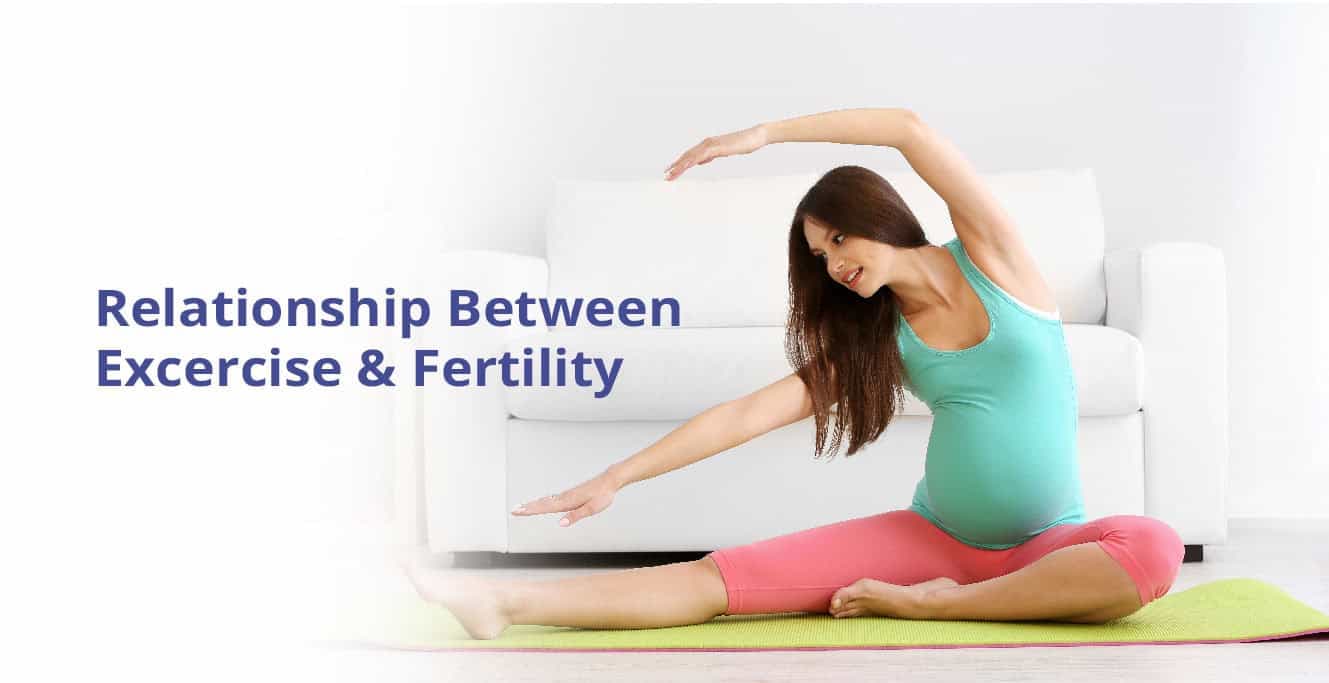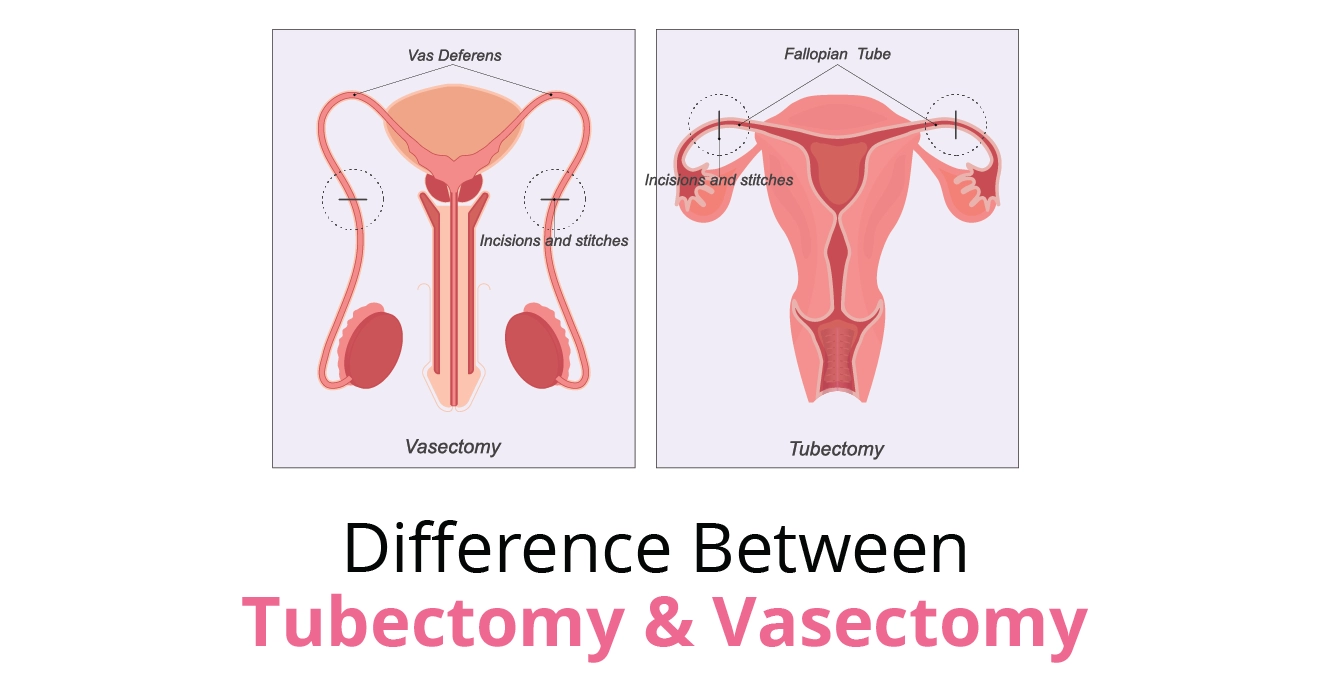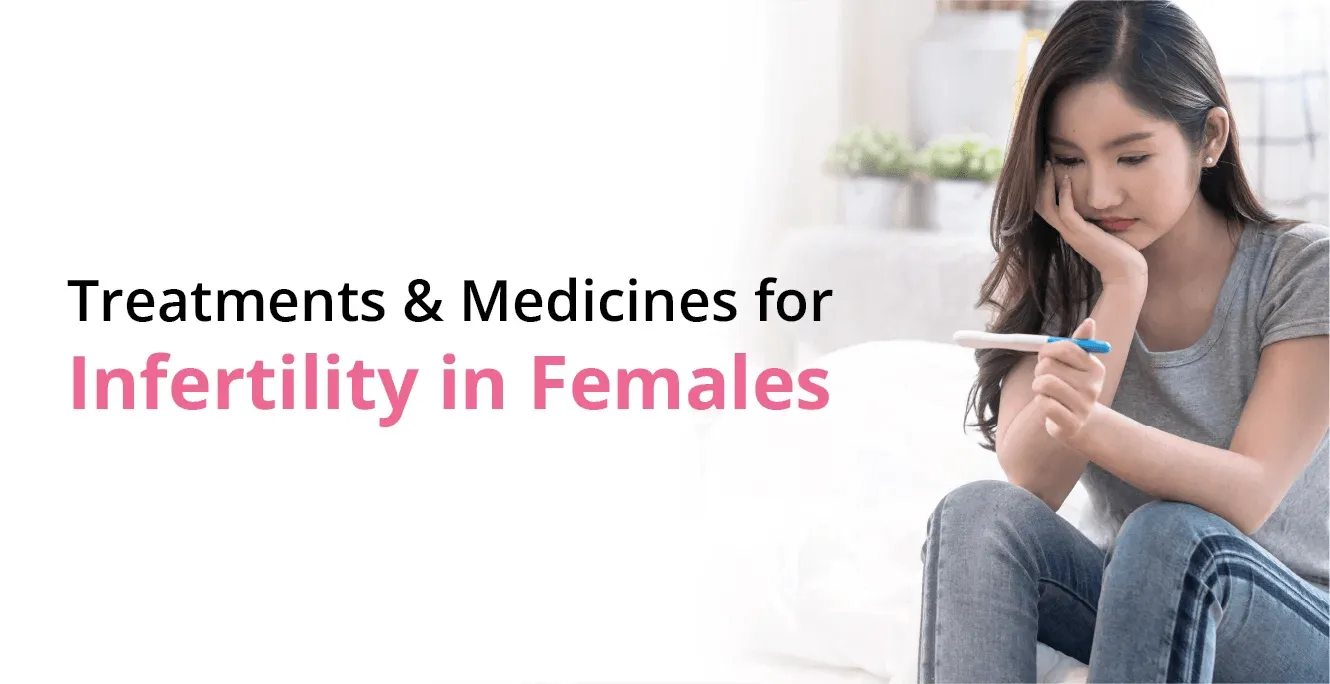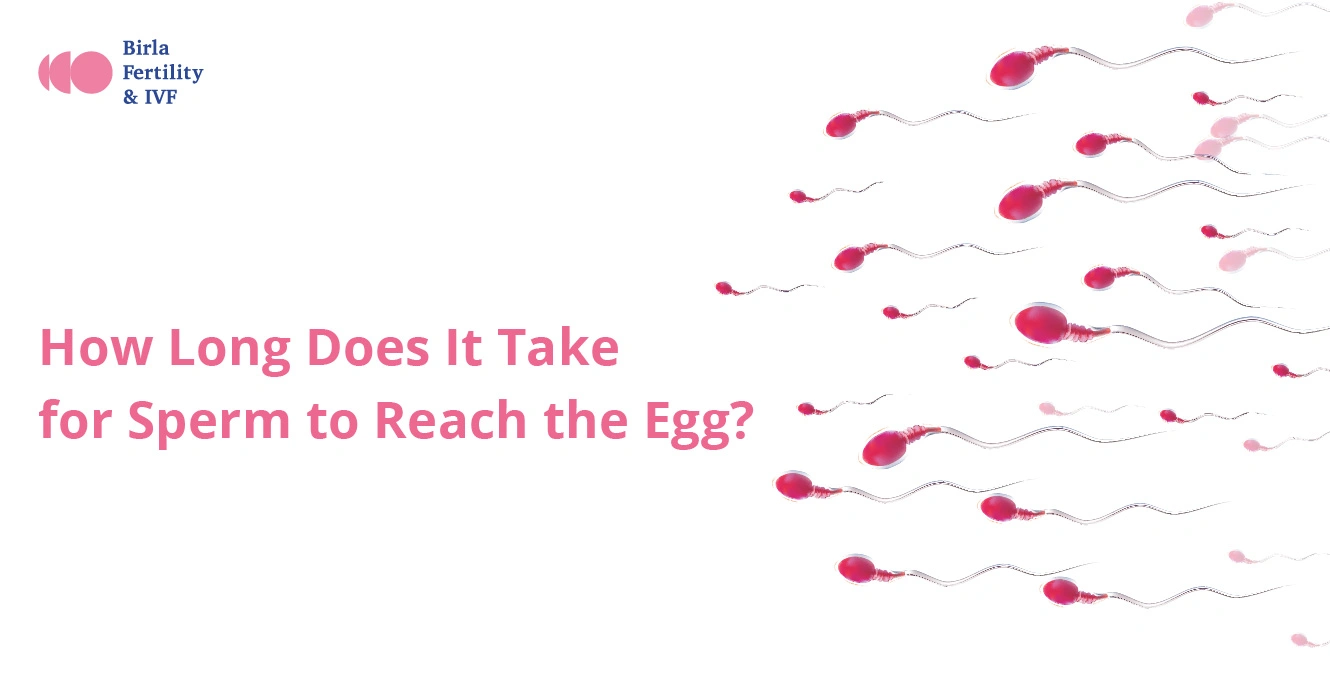
Relationship Between Exercise and Fertility

Table of Contents
“It is health that is wealth and not pieces of gold and silver.” – Mahatma Gandhi
Want to feel better, have more energy, and even add years to your life?
Just exercise.
Exercise is the key to a healthy life. It not only helps in weight management but also elevates mood, lowers the risk of several health disorders, improves immunity, and more. However, as you enter middle age, fertility issues become complex and require timely attention. Fertility experts emphasise that the first step toward addressing these concerns is improving your overall lifestyle with regular exercise and, most importantly, a balanced diet.
Relationship Between Exercise and Fertility
Fertility and exercise share a vital relationship and go hand in hand. If the body is healthy, it boosts fertility and increases the chances of conception. Mild to moderate exercise maintains regular weight, keeps hormones balanced, and also reduces the risks of health-related problems. According to renowned organisations’ reports, including the World Health Organisation (WHO), BMI should be within the standard/ healthy range, as being overweight or underweight can result in infertility disorders.
The most common infertility disorders in men and women are linked to an unhealthy lifestyle. For instance, in women, PCOS, irregular menstrual cycles, hormone imbalance, and reduced ovulation. Hence, there are exercises to increase fertility in females.
On the other hand, in men, erectile dysfunction, low motility sperm, increased temperature in the scrotal area, etc. However, exercise helps in combating all these mentioned risks that make pregnancy difficult and impact fertility.
How Exercise Impacts Female Fertility?
For women, the right kind of physical activity can have a measurable, positive impact on fertility. Exercising helps regulate hormones and improves emotional resilience. There are some recommended exercises to get pregnant as well. Let’s understand them in brief:
Regulating menstrual cycles and ovulation
When exercise is done regularly, it can help monitor hormonal balance. This is the key to having a healthy menstrual cycle, which leads to healthy ovulation. Exercising positively influences the levels of insulin and cortisol. When dysregulated, the hormones can interfere with reproductive function.
Managing PCOS and weight
Suffering from PCOS? Then exercise is a must for you. PCOS, also known as polycystic ovary syndrome, is closely linked to insulin resistance and weight gain. Both of these conditions can disrupt ovulation. You can add aerobic exercise or strength training a few times per week, which can overall improve insulin sensitivity, help manage weight and reduce PCOS symptoms. All of these facilitate and support fertility.
Stress reduction and mental health
Trying to conceive can be emotionally taxing, and long-term stress is known to disrupt the delicate hormonal balance that promotes conception. Because it lowers cortisol levels and raises feel-good neurotransmitters like serotonin and endorphins, exercise is a tried-and-true method of stress management and mood enhancement.
How Exercise Impacts Male Fertility
Most of the conversation around fertility focuses on women, but we fail to look at male reproductive health, which is equally important. Just like exercise can help with women’s fertility, it can also benefit men. It is especially true in the case of sperm health, hormonal balance, and reducing cellular damage that impacts fertility. Let’s see how:
Improving sperm quality, count, and motility
Some of the important characteristics of sperm, such as morphology (shape), motility (movement), and concentration, can be improved with the help of moderate regular exercising. On the other hand, if you can also go for high-intensity cardio exercises like heavy cycling or treadmill running can lower the quality of sperm. It is especially in cases when you are not balancing it with recovery.
Hormonal balance and weight management
Men suffering from obesity usually suffer from reduced testosterone levels, which leads to decreased sperm production. They need to exercise regularly to encourage weight loss and improve insulin sensitivity. This aids in the regulation of the hormones.
Reducing oxidative stress
When there is an imbalance between the body’s antioxidants and free radicals, they cause oxidative stress. This can harm sperm DNA and eventually lower fertility. There are some exercises that can lower oxidative stress and boost the ability of your body to shield sperm cells from harm. These increase the overall reproductive longevity as well as fertility.
Exercises that Help Boost Fertility
There are a number of exercises that can help you minimise the risk of infertility disorders. Some of them can really help improve fertility in both males and females. A few of the exercises for infertility are-
Walking
It is advised by fertility experts to add at least 30 minutes of walking to your daily routine. This is one of the safest exercises one can do without putting a lot of effort. Regular walking improves blood circulation in the body and uplifts mood while reducing stress.
Bicycling
This is an easy infertility exercise to keep yourself healthy. Maintain your routine of bicycling daily for 15-20 minutes. This helps maintain cardiovascular fitness, and it even increases the strength and flexibility in the body. Also, regular bicycling can reduce body fat levels.
Swimming
If not regular, one can swim three or four times a week. Swimming aims to reduce the body’s stress level and maintain a healthy weight. It is a full-body exercise for fertility that also increases muscular strength.
Yoga
It is the best yet a minimal form of infertility exercise. There are different types of yoga asanas that can significantly boost fertility. A few of the asanas that can improve fertility are Paschimottanasana, Sarvangasana, Viparita Karani, Bhramari Pranayama, and Bhujangasana. These exercises during ovulation and implantation can help with a successful and healthy pregnancy.

Exercises that have a Negative Impact on Fertility
The exercises mentioned above are minimal and need mild to moderate strength. However, there are a few types of exercises that require full-body strength and may negatively impact fertility rather than boost it. Some of the exercises one should avoid if they are facing fertility issues and trying to conceive-
Heavy Weights
Doing heavy weight training demands an excessive level of body strength. The excessive pressure on the pelvic area while doing such exercise can reduce the chances of conception and may reduce the success rate of assisted reproductive technologies such as IVF and IUI.
CrossFit
According to some studies, it is stated that CrossFit has more risks compared to heavy weightlifting exercises. At times, people push their physical limits and end up getting hurt. The loss of control can damage the body and may lead to infertility issues ranging from minor to severe.
Strenuous Activities
In most cases, strenuous activities put excess pressure especially on to lower body, causing damage to reproductive organs. However, it is always suggested to avoid such activities if you are planning a conception or undergoing fertility treatment.
Conclusion
The above information gives a brief understanding of the relationship between fitness and fertility. It is always suggested by doctors to follow healthy practices to maintain a good lifestyle in order to improve immunity. The mentioned exercises, such as walking, bicycling, yoga, and swimming, are some minimal exercises to help achieve a healthy body weight. In addition, a healthy lifestyle keeps hormones balanced. In some cases, recommended exercises may not effectively boost fertility.
To address infertility issues and to make parenthood possible for some, fertility experts recommend Assisted Reproductive Technologies (ART). IVF and IUI are the two most commonly performed advanced fertility treatments and have a higher success rate. If you are looking to fulfil the dream of parenthood, feel free to book an appointment with our best fertility expert in the city. You can either call us on the given number or fill out the form with the required details to book a free consultation, or visit our Fertility Centres.
Our Fertility Specialists
Related Blogs
To know more
Birla Fertility & IVF aims at transforming the future of fertility globally, through outstanding clinical outcomes, research, innovation and compassionate care.
Had an IVF Failure?
Talk to our fertility experts

 Our Centers
Our Centers




















